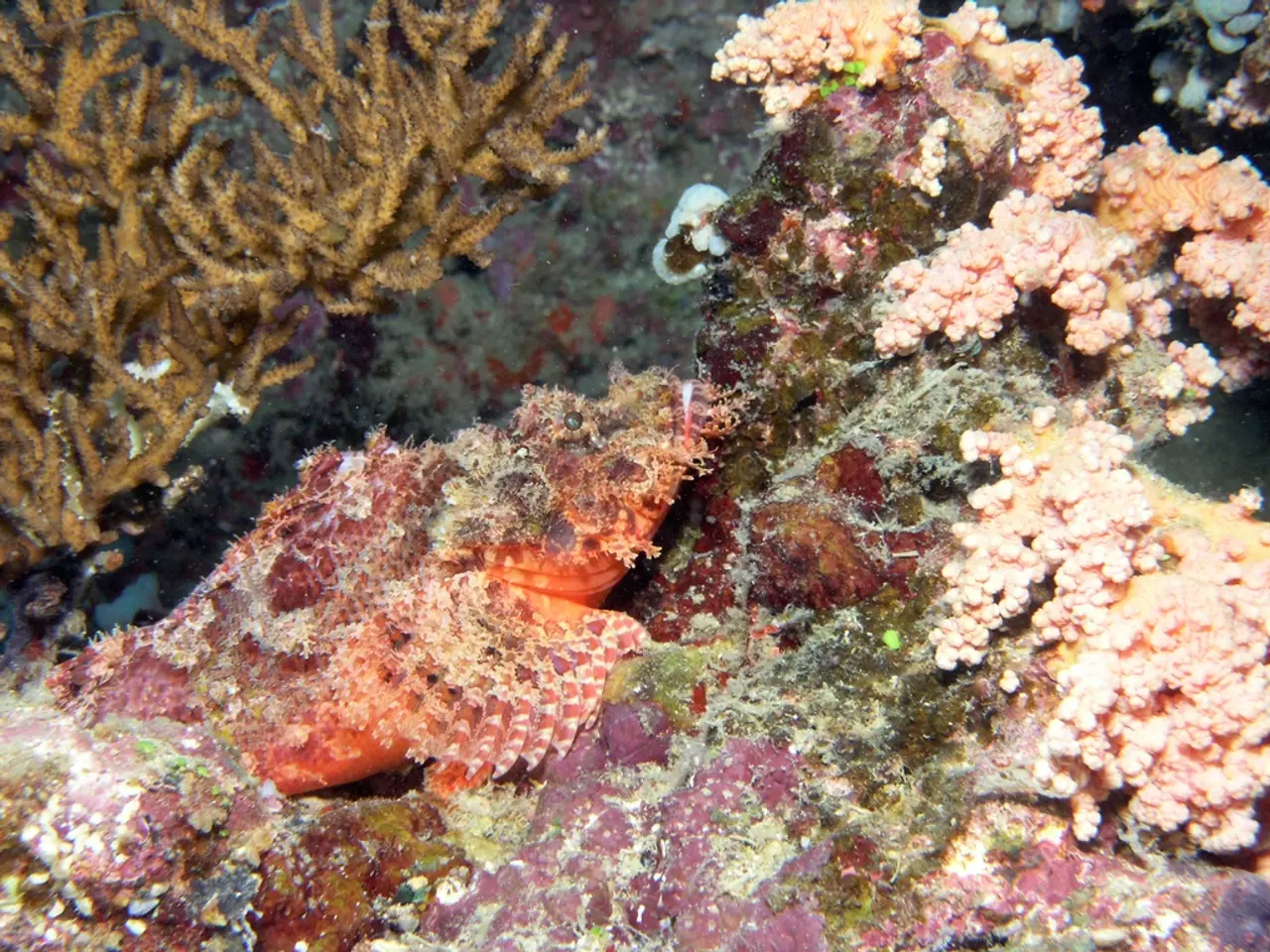Ocean Conservation Transforming into a Lucrative Business Venture
The ocean, once considered an inexhaustible resource and a bottomless dumping ground, is undergoing a transformation. Sustainability in the marine realm is not about sacrifice; it's about modernization, innovation, and efficiency. This shift is becoming increasingly evident as the ocean emerges as an engine of industrial renewal and geopolitical resilience.
However, the ocean is under greater threat than ever. It is being suffocated with plastic, heated with emissions, poisoned with chemicals, and depleted by overfishing. Yet, humanity continues to treat it as a resource to be exploited rather than a vital ecosystem to be protected.
Fortunately, a growing array of solutions is being deployed to reverse this trend and foster a sustainable blue economy. One such initiative is the Ocean Opportunity Guide, created by the Solar Impulse Foundation, which showcases a broad and mature range of ocean-focused innovations.
Ecosystem-Based Adaptation (EbA): Protecting and restoring natural ecosystems, such as mangrove forests, seagrass meadows, and coral reefs, provides climate resilience, habitat for marine life, carbon sequestration, and coastal protection. These nature-based solutions help buffer ocean acidification and coastal erosion while supporting biodiversity.
Marine Protected Areas (MPAs): MPAs remain a cornerstone of ocean conservation by legally safeguarding vital marine habitats. Successful examples include French Polynesia’s plan to establish up to 2 million km² of highly protected MPAs with involvement from Indigenous conservation systems.
Sustainable Fisheries Management: Adaptive management using data-driven quotas based on climate impact assessments and regular stock surveys helps maintain fish populations despite warming waters. Technologies like satellite tracking and AI-powered monitoring systems enable enforcement of fishing regulations and reduce threats such as bycatch.
Reducing Threats Beyond MPAs: Studies show that even with ambitious MPA coverage, critical habitats remain unprotected unless combined with other measures such as fisheries bycatch reduction. Efforts to map and reduce bycatch risk in fisheries are critical for species conservation.
Technological Innovation: Innovations like real-time satellite tracking, AI monitoring, and advanced data collection support effective fisheries management, enforcement, and climate impact analysis, enabling informed decision-making and improved ocean governance.
Integration of Indigenous Knowledge and Local Governance: Revitalizing Indigenous conservation practices and local management systems enriches marine governance with ancestral wisdom and promotes equitable stewardship.
Global Partnerships and Financing: Collaborative efforts among governments, philanthropy, NGOs, and local communities are mobilizing expertise and funding to achieve lasting ocean conservation impacts and develop sustainable blue economies.
Climate-Driven Innovation: Ocean-focused climate agendas promote low-carbon marine products like seaweed and marine renewable energy to support carbon removal and sustainable development, highlighting the link between ocean health and climate mitigation.
As an economic development strategy, ocean preservation is both future-proof and inclusive, appealing to investors, entrepreneurs, and policymakers alike. The Solar Impulse Foundation has identified over 1,800 clean and profitable strategies and tools for reconciling economic growth with environmental preservation in the blue economy. Clean innovation in the ocean economy is already generating competitive advantages for forward-looking companies and countries.
Far from an environmental constraint, ocean preservation is a catalyst for a more dynamic, resilient global economy. New financial mechanisms are emerging to bridge the gap between innovation and scale, particularly in vulnerable coastal economies. Financial instruments that de-risk nature-based investments are helping to stabilize coastal economies and expand access to new forms of capital.
Yet, there is a gap between what we know about the ocean's degradation and what is being done to address it. The potential for deep-sea mining in international waters by private companies poses a significant threat. It is crucial that we continue to advocate for the protection of our oceans and the implementation of sustainable solutions to ensure a thriving blue economy for generations to come.
- The shift towards a sustainable blue economy is demonstrated by initiatives like the Ocean Opportunity Guide, which promotes circular economy principles and contributes to the United Nations' Sustainable Development Goals (SDGs).
- Despite the threat of greenwashing, science and politics must collaborate to develop innovative solutions that reduce carbon emissions, combat climate-change, and foster a greener, more sustainable ocean-based economy.
- Environmental-science indicates that the degradation of our oceans can be mitigated through practices like Ecosystem-Based Adaptation (EbA), which protects and restores natural ecosystems, boosting their capacity to combat climate-change and support biodiversity.
- To address the challenges faced by our oceans, effective policy-and-legislation is essential, such as the establishment of Marine Protected Areas (MPAs) and the implementation of Sustainable Fisheries Management practices.
- General-news media plays a crucial role in raising awareness about ocean degradation and promoting solutions like Reducing Threats Beyond MPAs, Integration of Indigenous Knowledge and Local Governance, Global Partnerships and Financing, and Climate-Driven Innovation to ensure the protection of our oceans for future generations.






